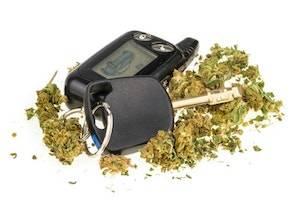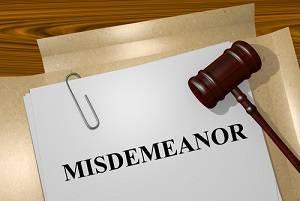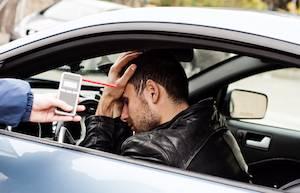Recent Blog Posts
What Happens to a Minor After a DUI Charge?
 Even though the legal drinking age in the United States is 21 years old, underaged drinking happens all the time. Especially if the minors are not being given proper parental supervision. In Illinois, there is a zero tolerance for underage drinking and driving under the influence . The Illinois Zero Tolerance Law states that anyone under the age of 21 that is caught driving under the influence will lose their driving privileges.
Even though the legal drinking age in the United States is 21 years old, underaged drinking happens all the time. Especially if the minors are not being given proper parental supervision. In Illinois, there is a zero tolerance for underage drinking and driving under the influence . The Illinois Zero Tolerance Law states that anyone under the age of 21 that is caught driving under the influence will lose their driving privileges.
DUI vs. Zero Tolerance Penalties
A driver under the age of 21 who is pulled over for suspected DUI can be issued either a simple DUI charge or a Zero Tolerance charge or both. This decision is made solely by the officer who makes the traffic stop.
The officer makes his or her decision based on the results or refusal of the field sobriety test and the chemical test that is taken on site.
- According to Illinois law, if a person under the age of 21 is charged under the Zero Tolerance Law, they are punished by:
Is Failure to Signal Considered Reckless Driving?
 According to Illinois law, reckless driving is defined as operating a motor vehicle with disregard for the safety of those sharing the road. Most often people think of examples such as speeding or driving under the influence of drugs or alcohol.
According to Illinois law, reckless driving is defined as operating a motor vehicle with disregard for the safety of those sharing the road. Most often people think of examples such as speeding or driving under the influence of drugs or alcohol.
Turn signals were added to vehicles as a safety precaution so that there could be clear communication between fellow drivers. So, failure to properly signal when you are turning or changing lanes is included in the reckless driving law in Illinois.
Why Should I Use My Turn Signal?
It is such a simple thing to do and yet most drivers fail to signal at least once in their lifetime. In a recent study done by the Traffic Law Headquarters, two million crashes a year are caused by simply not using the turn signal.
A turn signal is important because it:
Penalties for Driving Under the Influence of Marijuana in Illinois

Throughout the U.S., the number of states with either legalized medical or recreational marijuana, or both, is on the rise. With that comes an increase in incidents of driving while under the influence of cannabis and more focus from law enforcement on busting impaired drivers. If you have been charged with driving under the influence of drugs, it is critical you enlist the help of an experienced criminal defense lawyer immediately.
Drugged Driving in Illinois
Here in the state of Illinois, medical marijuana is legal for approved applicants under the Compassionate Use of Medical Cannabis Pilot Program Act, signed in 2013. Since the induction of the program, the Illinois Department of Public Health (IDPH) has approved over 42,000 applicants for legal consumption of marijuana for medicinal purposes. Driving under the influence of marijuana though can come with significant criminal punishment, whether you are a legal medical marijuana cardholder or not.
What is an Aggravated DUI in Illinois?

Here in the state of Illinois, law enforcement is always on the lookout for drunk drivers. According to the Illinois Secretary of State’s Office, police made 27,046 DUI arrests in 2017 alone. According to Illinois state law, there are a number of factors that can cause a DUI to be elevated from a misdemeanor to a felony. In these cases, the DUI becomes an aggravated DUI.
What Constitutes an Aggravated DUI?
In the vast majority of cases, a DUI is charged as a misdemeanor. When aggravating factors justify the DUI to be designated as a felony, the legal ramifications can be substantial. This includes mandatory jail time to the loss of driving privileges for as long as a decade.
Third or Subsequent DUI Conviction
One of the most common aggravating factors is a third DUI conviction. Here in the state of Illinois, this constitutes a Class 2 felony. If convicted, the offender could face up to seven years in prison. In the event of a third DUI, the court may decide you are no longer capable of driving with a standard driver’s license and suspend it for up to 10 years. At that point, you can obtain a Restricted Driving Permit (RDP). If you can adhere to the rules and regulations of an RDP, for five consecutive years, you may be able to apply for full license reinstatement.
Understanding Misdemeanor Charges in Illinois

Here in the state of Illinois, misdemeanor charges can come with significant criminal punishments. While some people underestimate the potential impact of a misdemeanor when compared to a felony, the long-term ramifications of a conviction can include difficulty securing employment, housing, or loan opportunities. Legally speaking, a misdemeanor can result in jail time and significant fines.
Below we will discuss what crimes could lead to a misdemeanor conviction, and what you should do if you have been charged.
Misdemeanor Crimes in Illinois
According to Illinois state law, there are a number of crimes that can ultimately result in a misdemeanor charge. Assault or disorderly conduct (examples of disorderly conduct include public intoxication or a violation of noise ordinances) constitute a Class C misdemeanor. This is the least severe of the three misdemeanors, but can still result in up to 30 days in jail, a two year probation period, and maximum fines of $1,500.
What is Criminal Record Expungement in Illinois?

After being charged with a crime, it is important to understand the potential long-term ramifications. Outside of possible jail time, significant fines or loss of driving privileges, a misdemeanor or felony conviction can impact many aspects of your life. Many individuals with a criminal charge on their record face difficulty finding employment, securing housing, and receiving financial loans.
Some criminal charges are eligible for expungement or a record seal, which remedy many potential complications in life. The expungement process can be complex and difficult, however, and requires the guidance of a skilled criminal defense lawyer.
Understanding the Expungement Process
An expungement is a court-ordered process that allows the legal record of an arrest to be erased from a person’s criminal record. Eligibility for expungement depends on the type and severity of the crime. Here in Illinois, expungement is possible in a large number of cases. If you were arrested for a misdemeanor or felony, but never convicted, you will likely be able to have the charges expunged. In other cases, you can file for expungement after completing a mandated suspension, or in the instance of a conviction reversal or dropped charges.
Fighting Felony Charges in Illinois

Facing felony charges comes with significant stress and uncertainty. In all reality, it is important to act quickly after the initial arrest. With an aggressive and comprehensive legal strategy, it is possible you could secure a lesser charge, or avoid a conviction altogether. In Illinois, a felony charge can carry substantial jail time and devastating fines. Immediately after your arrest, it is critical to seek the guidance of an experienced criminal defense attorney who you can believe in.
Common Illinois Felonies
Here in the state of Illinois, even a Class 4 felony (the lowest of Illinois' felonies) can bring up to $25,000 in fines and as many as three years in prison. Listed below are some of the most common felonies committed throughout the state:
Aggravated DUI: According to Illinois state law, a drinking and driving arrest can be elevated to an aggravated DUI in a number of situations. If a person is convicted of a third or any subsequent DUIs, they will likely face Class 2 felony charges. Other aggravating factors include driving under the influence without a valid driver’s license, while transporting a child, or causing bodily harm to another party.
What are Laws for Drug Possession in Illinois?

Here in the state of Illinois, possession of illegal drugs can come with serious legal ramifications. While medical marijuana is legal, recreational use and possession of marijuana are not. While possession of cannabis charges are serious, getting caught with even a small amount of cocaine, methamphetamine, or heroin can be life-changing if you are convicted.
If you are charged with a drug crime, it is important to understand the potential consequences and seek experienced legal assistance as soon as possible.
Drug Charges in Illinois
According to Illinois state law, the possible legal penalties of drug crimes depend on the type of substance and the amount seized by law enforcement.
If you are apprehended with less than 10 grams of marijuana, you may be charged with a civil offense, with a fine of up to $200. Possession of 10 to 30 grams is a misdemeanor for a first offense with up to a year in jail and fines of $2,500. Anything more than 30 grams becomes a felony, with mandatory minimum sentencing for a conviction and fines up to $25,000.
What to Do During and After a DUI Arrest in Illinois

Here in the state of Illinois, law enforcement is constantly on the lookout for drunk drivers. According to the Illinois Secretary of State’s office, more than 27,000 people were arrested on DUI charges in 2017 alone. A DUI conviction can come with serious legal ramifications and should not be taken lightly.
Once you have been pulled over by a police officer, it is important to understand how your actions can impact your case. In the event of an arrest, contact an experienced DUI lawyer as soon as possible.
Illinois DUI Stops
If you are driving, and you see a law enforcement officer turn their lights on behind you, it is important to follow basic safety procedures. Do not stop in the middle of the road, simply slow your vehicle and find a safe place to pull over. Do not pull over on a bridge, next to a guardrail, or on a sharp curve. Once you have come to a complete stop in a safe location, it is important to remain calm.
What to Do if You Are Charged with Shoplifting

Every year, retailers throughout the United States lose billions of dollars due to shoplifting. Because of this, store security and law enforcement are increasingly on the lookout for shoplifters. According to the National Association for Shoplifting Prevention (NASP), approximately 1 in 11 Americans will commit retail theft at some point in their lifetime. If you have been charged with shoplifting, you need to fully understand the implications of a conviction and seek skilled legal representation as soon as possible.
Retail Theft Charges in Illinois
Here in the state of Illinois, shoplifting is defined as the act of taking, possessing, or carrying away a retail item without paying the marked retail value. It is important to note, retail theft is not limited to the act of physically stealing an item. Illinois law states a person can be charged with shoplifting if they pretend to own an item, utilize an anti-theft detection device, or alter the price tag of a retail good. The ramifications of a shoplifting conviction can be severe.







